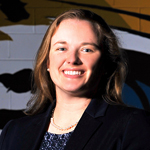With online education becoming a viable option for more individuals, the higher-education industry is rapidly changing. As general counsel for Bridgepoint Education, Diane Thompson is keeping the company in compliance with rules and regulations and anticipating changes in this unpredictable landscape before they happen.
What do you consider your most important role?
Hiring good people to work for Bridgepoint Education. If it’s just me doing good work then that’s great, but part of my job is bringing in talented people who are smarter than I am and motivating them to do good work for the company.
How has your extensive HR background benefited you in your role as general counsel?
It’s not a typical path, but if you think about it, there are a lot of advantages. First of all, managing employment litigation is an essential component of any GC’s role. Any business is going to have employment issues. And as those issues become increasingly prevalent and expensive, my experience in resolving such disputes early helps me avoid employment litigation. Having worked in HR has helped me develop the understanding of what motivates people, so I have a leg up in negotiating and resolving issues between employer and employee before they become bigger than they need to be.
What qualities make a strong in-house counsel? What about outside firms?
The most important quality for in-house counsel is the ability to form a strong relationship with the business in order to craft solutions that meet the business’s needs as well as the spirit and the letter of the law. The most successful in-house lawyers can speak the language of the business and see things from the company’s perspective, while still maintaining necessary legal responsibilities. When I look for an outside firm [to work with], I look for relationships and expertise in a specific area. I use short monthly phone calls on specific matters with outside counsel so that I am never caught off guard about where something is. The regular contact also works as a tool to keep our business goals front and center. It’s important to me that an outside firm is treated just as much a part of our team as in-house counsel.
Many corporate counsel advocate being generalists. Do you agree?
I find that I become more of a generalist the longer I work as a general counsel. Our in-house attorneys have areas of expertise, and they practice primarily in those areas. However, they have the opportunity to practice in other areas as well. For myself, though, I found that after practicing employment law for many years that I had knowledge a mile deep in employment law, but only a little depth in other areas. Five years later, I feel I am more of a generalist, having an inch of knowledge in a lot of different areas. My role now is to bring in expertise where we need it, whether by hiring in-house counsel or by engaging outside counsel.
How does the growth in higher education affect your role?
We operate in a highly regulated industry, so we are constantly watching for changes in the regulatory landscape. A large part of my role is to stay ahead of those changes. The goal is to be well prepared to comply with possible new regulations before they become final regulations. I love being in higher education because it changes so rapidly. Some people find change frightening and others are motivated by change. I fall into the latter group. For me, keeping the vision and the focus on the right discussion points and encouraging people to speak up when needed is what works best.
What’s the biggest difference between being a lawyer and general counsel?
There’s plenty of law training in law school, but very little business training. Lawyers are taught to identify risk and, where appropriate, to eliminate it. As a GC, you can’t be unnerved by managing the risk. That’s a part of any business. I tell my folks, “You have to be comfortable working in the gray.” It’s not like law school. In the business world, decisions need to be made in the absence of 100 percent of the information. Being comfortable working in such an environment is mandatory. Those who can find solutions in the gray area are the ones who will be most successful.

